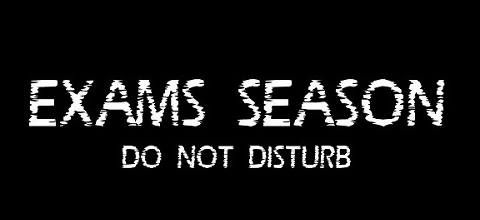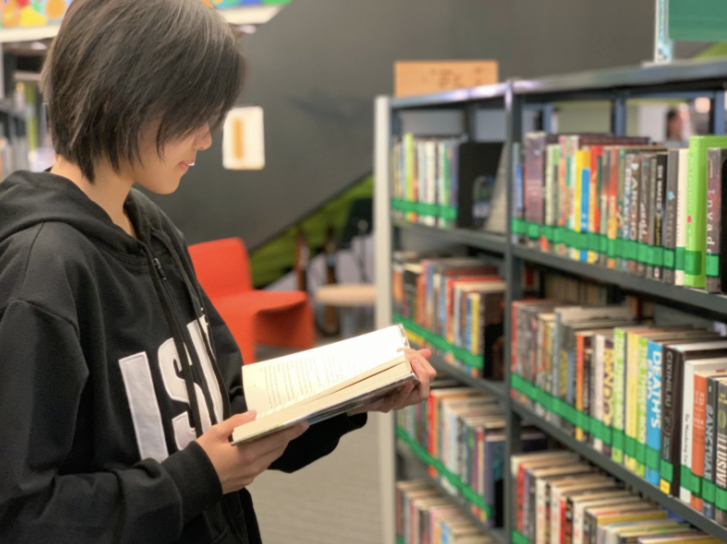Whether you begin studying for exams a week or a month before, mental breakdowns are often seen in students during that time. Students get severely stressed and anxious about the amount of revision they have to do and tend to forget the material they have studied. Here are a few pro-tips for getting through mental breakdowns to kickstart your studying sessions or ease your pre-examination concerns:
Picking up on a consistent sleeping schedule is one of the most important factors to a successful exam week. While all-nighters and late-night study sessions may seem beneficial and give students more time to cram work, they are more likely to drain your energy and brainpower. Lack of sleep leads to sleep deprivation and often results in loss of information that students have studied the night before. It is better to sleep the night before an exam, even if there are less hours to study. Research has shown that getting a good night of sleep will lead to a more positive energy and higher concentration the next day than staying up all night cramming.
It is also important that your sleeping environment is free of disruptions. Make sure that there is an area for studying such as a desk rather than on a bed. Using electronics or studying in bed may stop your brain from associating the bed as a place of rest. Instead, your bed will become a place of stress and that will make it hard to initiate sleep at night.
Avoid catching up sleep on the weekends. Students are often tempted to rely on the weekend to catch up on sleep that were lost during the weekdays. However, it actually ruins your sleep schedule. Instead, get a regular amount of sleep each night for as many days as possible and if it is necessary, sleep for an hour longer during the weekend than your normal weekdays.
Many students believe that cram sessions and spending hours huddled in front of a computer is the most efficient method of studying. However, it is more important to pause and relax to reboot your energy for productivity, success and have a positive mindset. When you feel the need for a break, listen to your inner self and take that break to recharge yourself. Scientists have proved that brief diversions from an assignment can improve people’s ability to focus on that task more longer periods of time.
During these study breaks, do some kind of stretch. Stretching will help ease muscle tension and help with concentration when studying. Do not take very long breaks. Instead, it is better to take more frequent short breaks to not lose motivation and get totally out of the flow.
Get together with friends for a study session. Creating study groups is an effective method to enhance your learning. Finding friends in the same class and asking them questions about your concerns can ease your stress. You may have questions that they have answers to and vice versa. However, it is important that the people around you will stay focused and not distract you instead.
Furthermore, study groups are interactive and when students are around their peers, it ensures a much deeper learning of the subject that was missed during self-study. Two or more brains are better than one!
It can be very tempting to spend hours on social media and get distracted instead of focusing on your task. But using apps that block websites such as Facebook and Instagram such as The SelfControl app will minimize the urge to get off task. These apps usually completely block certain websites for a chosen amount of time. Just set a time period of time to block for, add sites to your blacklist and click “start.”
![]() STRESS EAT: There is nothing better than comfort food when you are stressed and on the verge of a mental breakdown. So eat that ramen!
STRESS EAT: There is nothing better than comfort food when you are stressed and on the verge of a mental breakdown. So eat that ramen!
![]() PET CUTE DOGS: It is scientifically proven that dogs can help humans relieve stress. Interactions with therapy animals can reduce the level of stress in people.
PET CUTE DOGS: It is scientifically proven that dogs can help humans relieve stress. Interactions with therapy animals can reduce the level of stress in people.
![]() BINGE WATCH TV SHOWS: Catch up on that episode you have been dying to watch!
BINGE WATCH TV SHOWS: Catch up on that episode you have been dying to watch!
Hopefully most of these tips will improve your study habits and ensure that your studying environment is comfortable and free of distractions. Remember to study ahead of time in order to clear all questions or concerns.
Carissa Tan (10)












